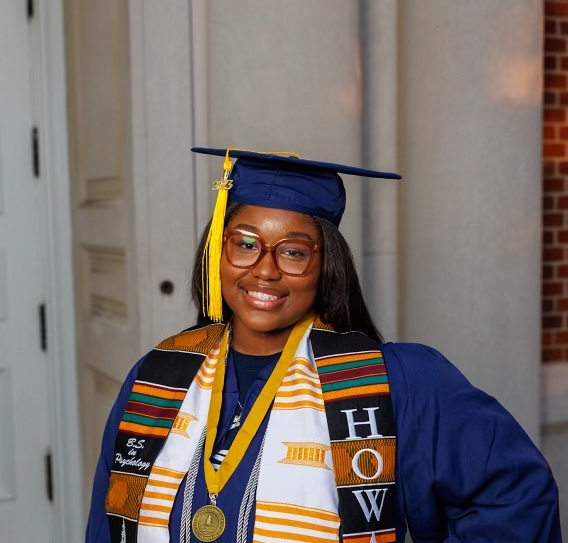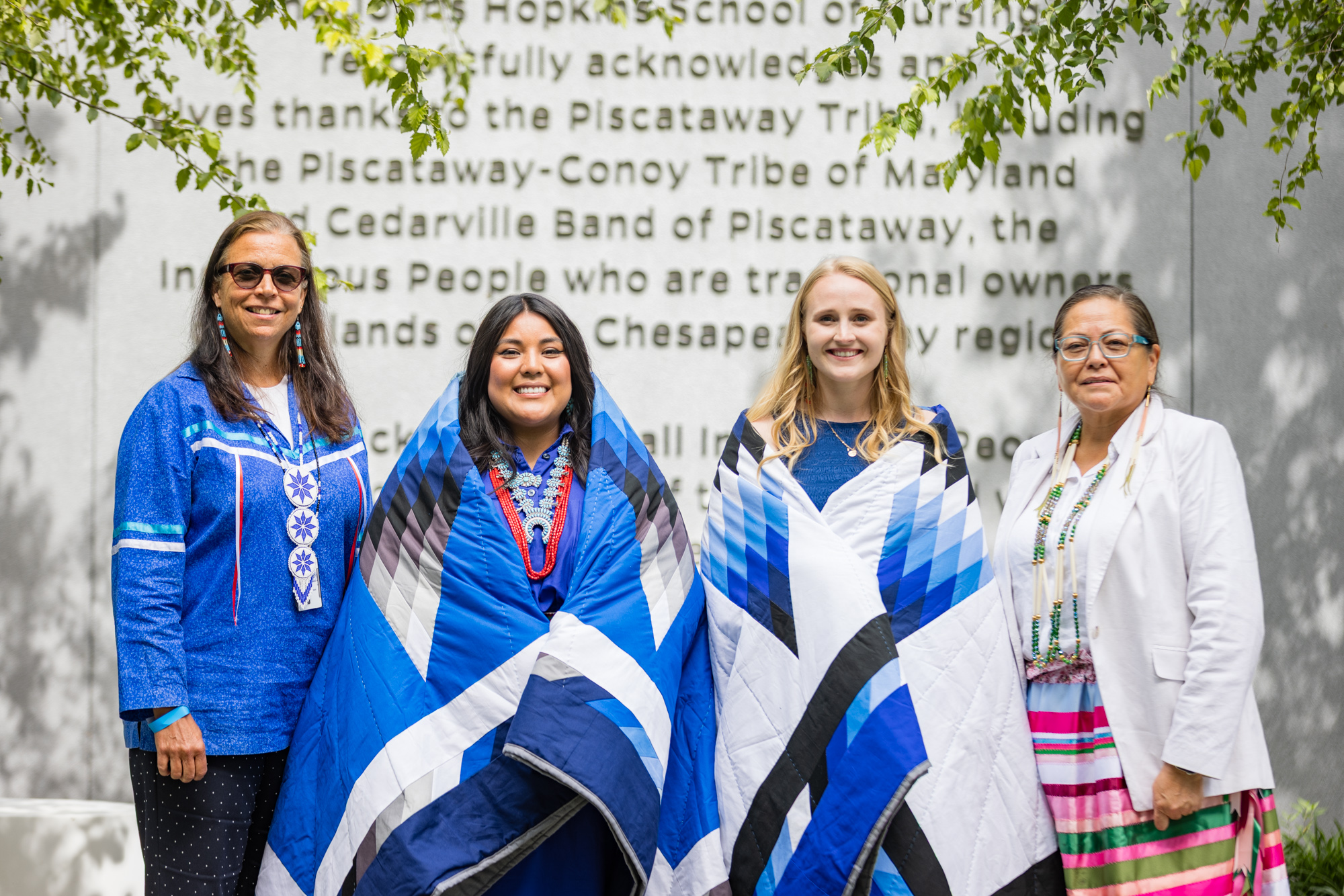The Starblanket Ceremony stands as a deeply meaningful Native American tradition that honors achievements, milestones, and spiritual connections. With guidance and leadership from Dr. Teresa Brockie’s team, the Johns Hopkins School of Nursing holds this ceremony the same day as commencement to recognize new Native American nurse leaders in healthcare. In 2025, we celebrated MSN (Entry Into Nursing) graduates, Phoebe Keryte (Diné, Isleta, and Santa Ana Pueblos), and Autumn Jensen (Citizen of the Potawatomi Nation).
Wrapped in Tradition
The Starblanket itself is a sacred quilt, woven with intention and tradition and given as gifts during honorings and giveaways. During the ceremony, Phoebe and Autumn were physically wrapped in the Starblanket by family, friends, and loved ones. It’s more than fabric; it’s a symbol of protection, celebration, and connection to ancestry. Starblankets may be seen:
- As banners in schools during graduations.
- Draped over altars or sweat lodges.
- Given during weddings or births.
- Presented in mourning as a symbol of remembrance.
As Dr. Brockie explains, the ceremony is a formal honoring. It’s also a living tradition, reminding us that Indigenous culture is vibrant and enduring.
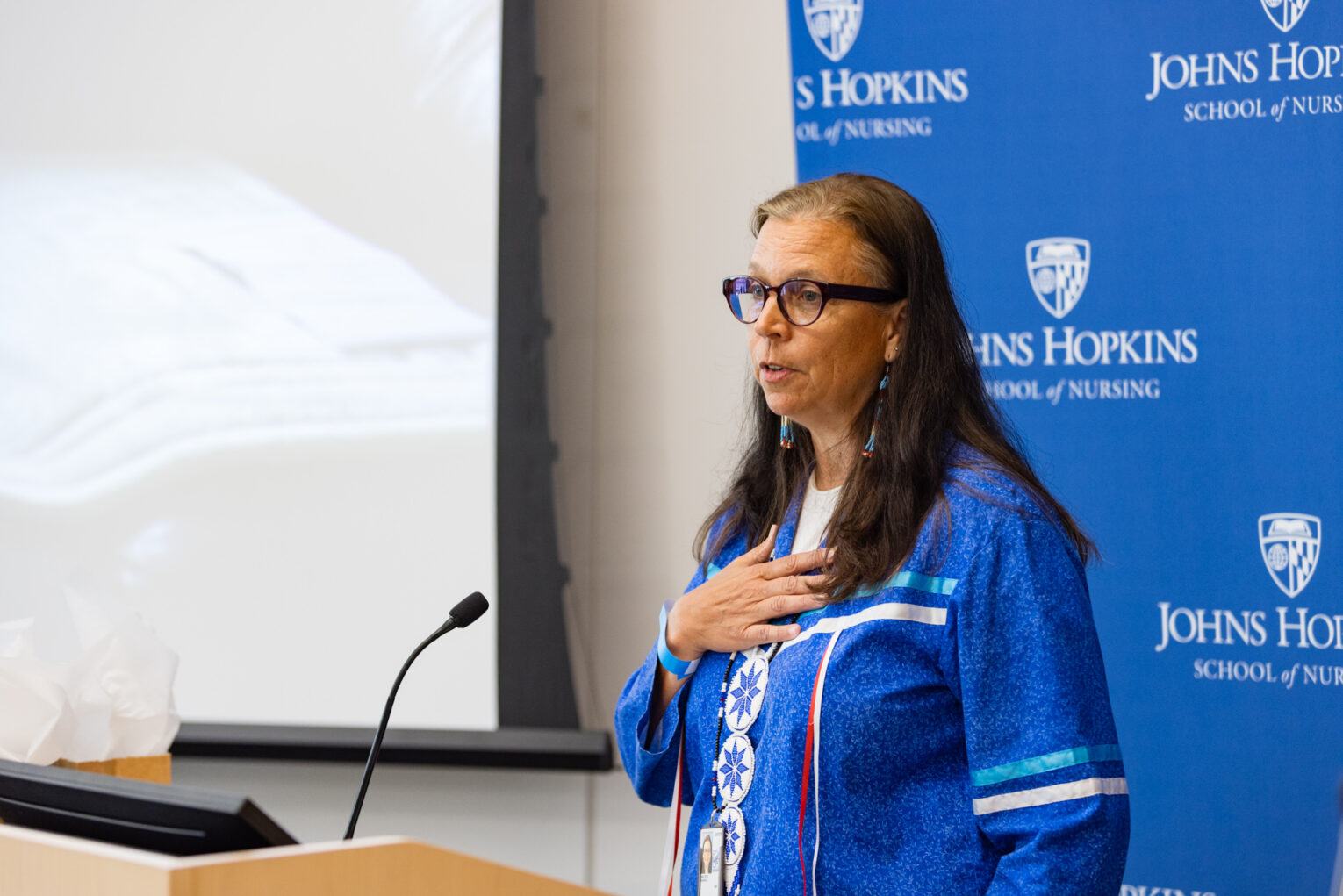
Voices From the Community
To understand what the ceremony means to those who take part, we asked community members to share their reflections.
“It’s a way to honor our people and their achievements. It makes me happy to see other Native American people entering healthcare. It inspires me.”
— Emilyn Bauer Burns
“Community.”
— Ashley White, Center for Indigenous Health
“Protection and spirituality.”
— Selina Keryte (Phoebe’s mother), Tribal Health Research Office at the National Institutes of Health
Cultural Practices as Medicine
The ceremony also encourages deeper conversations about how traditional practices, such as ceremonies, storytelling, and medicine, contribute to individual and community wellness.
Dr. Karina Walters, Ph.D., M.S.W., an enrolled member of the Choctaw Nation of Oklahoma and director of the Tribal Health Research Office at the National Institutes of Health (NIH), shared a profound perspective.
“We are the medicine, and we are the stories. If we’re caring for our stories, we’re caring for ourselves.”
Others reflected on the power of oral traditions:
“Storytelling is wisdom. These are not just stories, they’re real. Our creation stories shape who we are.”
— Selina Keryte
Representation in Healthcare Matters
Representation in healthcare was another key theme. For Indigenous people, having providers who understand and share their background can be life-changing.
“It makes a huge difference having role models who have broken down barriers. We are often erased in Western institutions. Seeing each other in these spaces is a powerful, even primordial, experience.”
— Dr. Karina Walters
“We’ve always been scientists in our own ways. Walking in two worlds, holding traditional knowledge while learning in Western institutions, is powerful.”
— Phoebe Keryte, MSN graduate; Diné, Isleta, and Santa Ana Pueblos
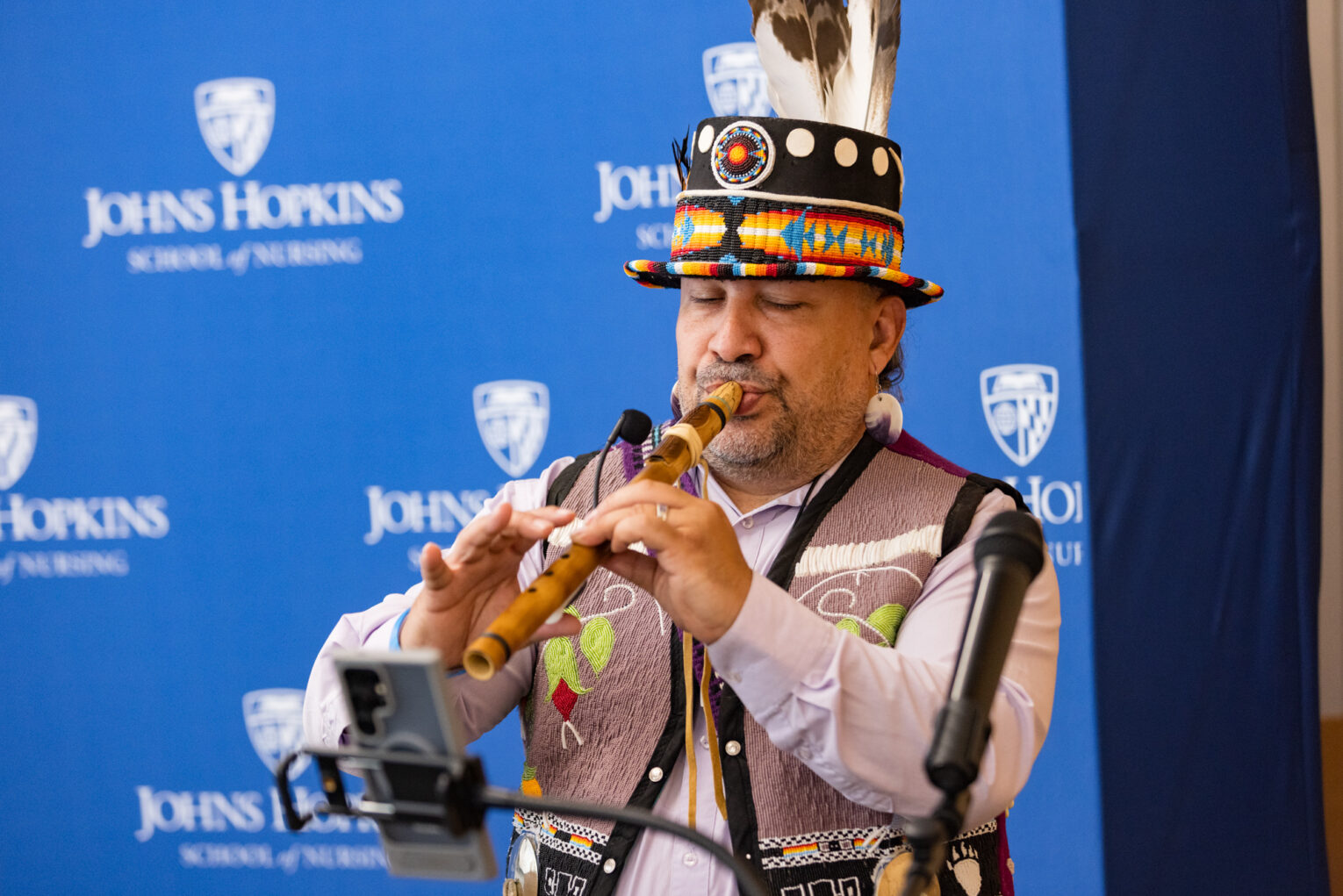
Keeping Tradition Alive for Future Generations
The group also shared advice on how to preserve culture for the next generation:
- Stay involved in ceremonies.
- Learn and speak Indigenous languages.
- Lift up youth and remind them they belong everywhere—from the cosmos to STEM.
“Knowledge is never taken away from you. It’s always evolving. That’s what we need to teach our youth.”
— Phoebe Keryte
What Allies Can Do
Non-Indigenous allies and institutions can play a critical role in respecting and supporting Indigenous traditions, but it starts with listening.
“Let Indigenous people lead. And when we’re not around, are you still upholding what was shared?”
— Dr. Karina Walters
“Know whose land you’re on. Educate yourself on tribal sovereignty. There are 574 federally recognized tribes, each with unique traditions and political status. We are not just part of DEI.”
— Selina Keryte
“Be active listeners. Come to the space to listen and learn, not to take it over.”
— Emilyn Bauer Burns
The Star Blanket Ceremony is not just a moment of honor; it is a reminder of the resilience, wisdom, and strength of Indigenous peoples. As Indigenous leaders in health continue to walk in two worlds, they illuminate a path for others to follow. For allies and institutions, the call is clear: listen, learn, uplift, and let tradition lead.
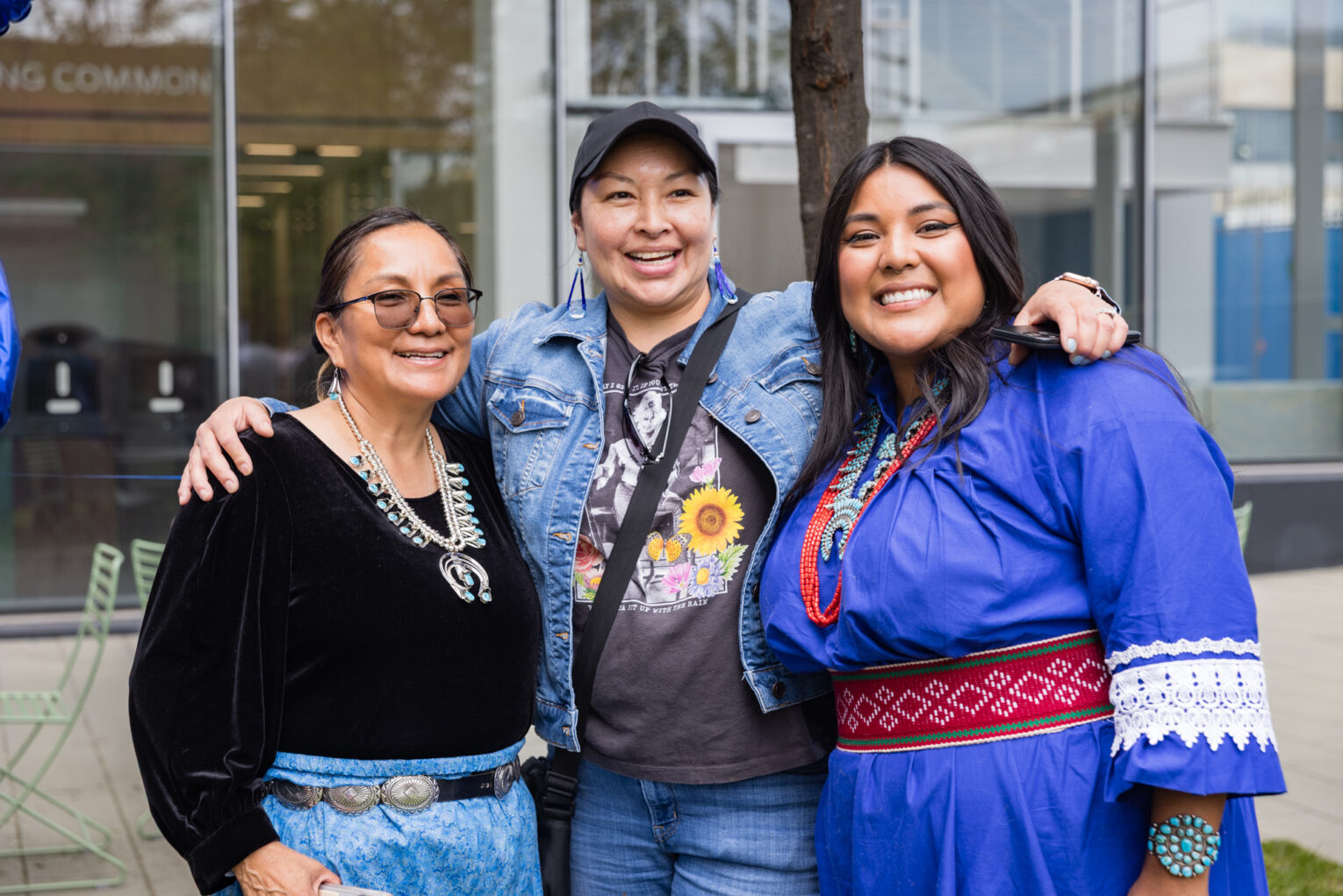
Read More:
- Indigenous Peoples Day: Food Sovereignty
- Culture, Compassion, and Care
- Episode 43: Health Care From an Indigenous Worldview
About the Author: Janai Williams
Janai Williams is a fourth semester, Master’s Entry Nursing student at the Johns Hopkins School of Nursing. Janai graduated from Howard University in 2023 with a Bachelor of Science in psychology and plans to continue her career journey into Psychiatric nursing and Emergency Medicine.
